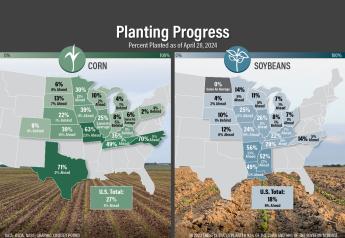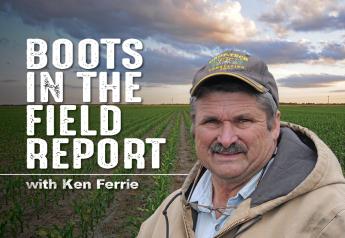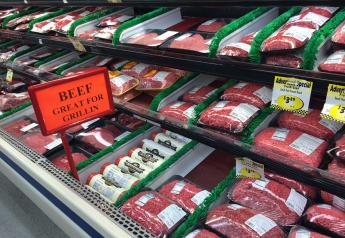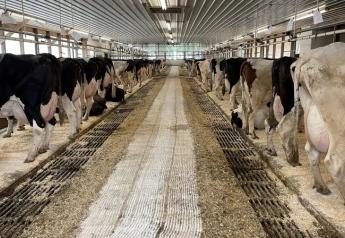Scientists advance disease resistance in 3 important crops

This week's advanced online publication of the journal Nature Biotechnology carries three important papers on crop disease resistance. They report the isolation of novel disease resistance genes and the successful transfer of resistance into wheat, soybean, and potato. The 2Blades Foundation supported the development of these efforts as part of the organization's mission to discover, advance, and deliver genetic improvements in crop disease resistance.
2Blades tackles the increasing demands on world-wide agricultural production by targeting the control of crop diseases. Plant pathogens cause global crop losses estimated at around 15%, and some pathogens can cause total crop failure. Though diseases are managed with the use of agrochemicals and resistant crop varieties, pathogen populations rapidly adapt to these measures. Recent discoveries in plant science provide opportunities to develop more durable genetic resistances to pathogens, yet the deployment of these advances in the field has scarcely advanced in the past twenty years. 2Blades works to bridge the gap between scientific discovery and agriculture by supporting initiatives to develop and deliver crops with innate disease resistance to commercial and smallholder farmers.
The Nature Biotechnology reports focus on wheat stem rust, Asian soybean rust, and potato late blight, diseases that are difficult to control, and each capable of causing yield losses over 80%.
- Wheat stem rust (WSR) affects wheat, which provides 20% of globally consumed calories and protein. WSR-resistant wheat varieties were bred and widely deployed in the 1950s and 60s, but newly-emerging WSR strains overcome resistance in these varieties. One of the reports, by researchers at the John Innes Centre (Norwich, UK), working with researchers at CSIRO (Canberra, AU), details a key innovation in resistance gene identification called MutRenSeq (Mutational Resistance Gene Enrichment Sequencing) that they used to isolate two resistance genes, Sr22 and Sr45. The effort is part of a major international program that 2Blades has pursued since 2008 that aims to develop a durable, multi-gene stack of resistances for deployment against WSR.
- Asian soybean rust (ASR) affects soy, a critical source of protein and edible oil with global production of over 300 million tons. ASR causes yield losses of up to 80% and threatens production in South America where more than half of the world's crop is grown. Durable genetic resistance is lacking, and chemical control measures cost more than $2 billion per year in Brazil alone. 2Blades began a collaboration with the Universidade Federal de Viçosa (Brazil) in 2008, which grew into a major program within the 2Blades Group at The Sainsbury Laboratory (Norwich, UK), and a partnership with DuPont Pioneer (Johnston, IA). Together, the team isolated a gene, CcRpp1, from pigeonpea (Cajanus cajan), transferred it into soybean, and demonstrated high-level resistance to ASR in commercial soybean for the first time. Further development of this transgenic disease strategy is aimed at protecting the durability to provide stable yields for growers while simultaneously reducing the need for chemical treatments.
- Late blight of potato is well-known for devastating the Irish potato crop in the late 1840s causing widespread famine. Late blight susceptibility remains a threat for most commercial potato varieties. Researchers at The Sainsbury Laboratory (Norwich, UK) isolated a new late blight resistance gene, Rpi-amr3, from American black nightshade (Solanum americanum), a wild relative of potato, and transferred this into susceptible potato varieties. 2Blades helped advance this discovery by supporting the intellectual property protection and licensing to partners for development.
2Blades continues to work with research, commercial, and charitable partners to ensure deployment of these technologies and to promote maximum durability of resistance traits.
Roger Freedman, Chairman of 2Blades, commented: "2Blades has favored a simple strategy for fighting plant disease. Plants are generally able to defend themselves from disease, but successful pathogens overcome the plant defenses by evading recognition. What we have done is to restore the ability of the plant to 'see' the pathogen. Once that's done the plant itself does the rest. That's the way all three of these resistances work."
"2Blades is a not-for-profit organization" said Diana Horvath, President of 2Blades. "We work for the broadest benefit, focusing exclusively on advancing scientific insights into practical applications for crop disease resistance. We aim to develop and deliver solutions to crop diseases that threaten food security throughout the world. The results reported in Nature Biotechnology are significant advances, and we will continue to undertake the efforts necessary to ensure these technologies are deployed where they are needed most."







